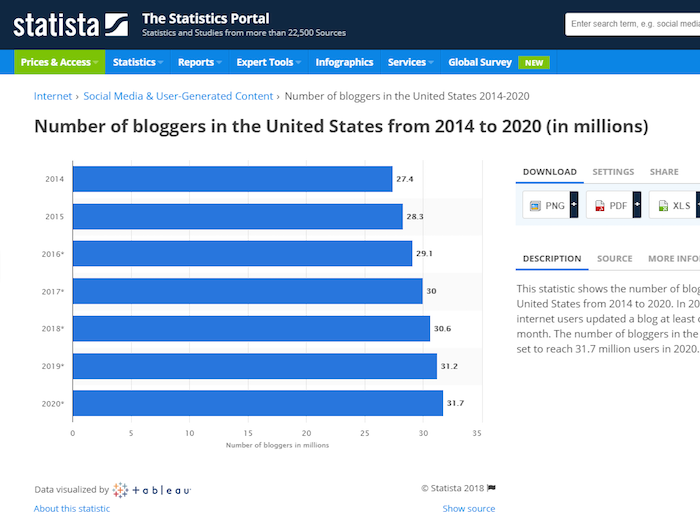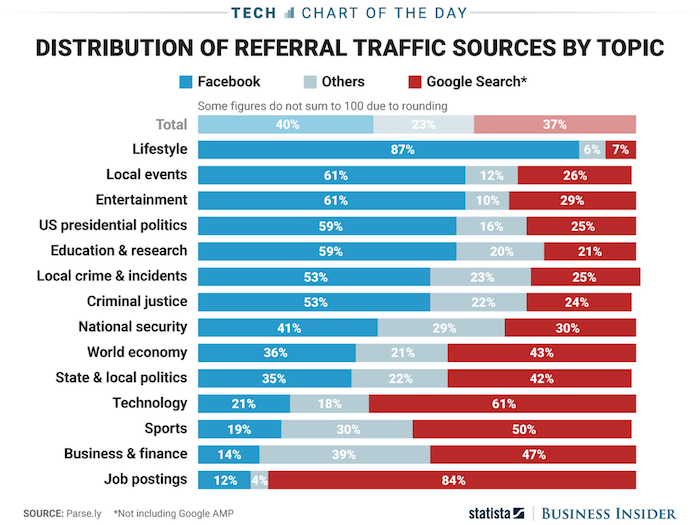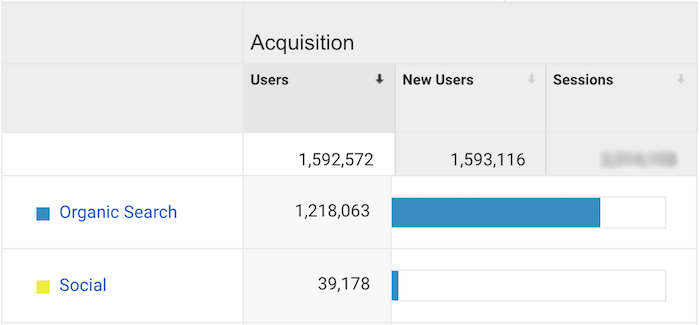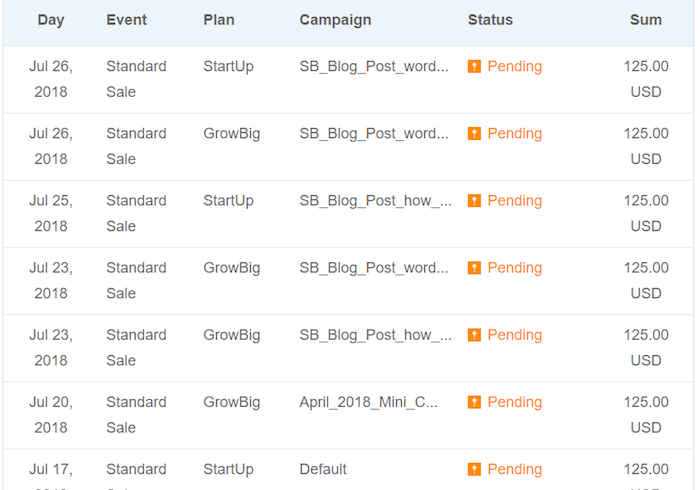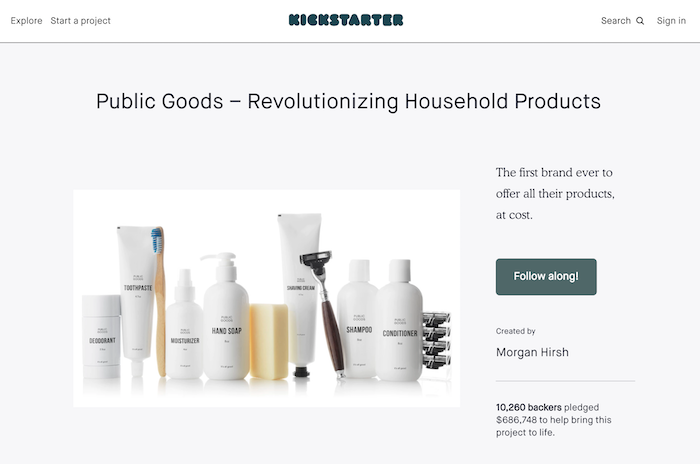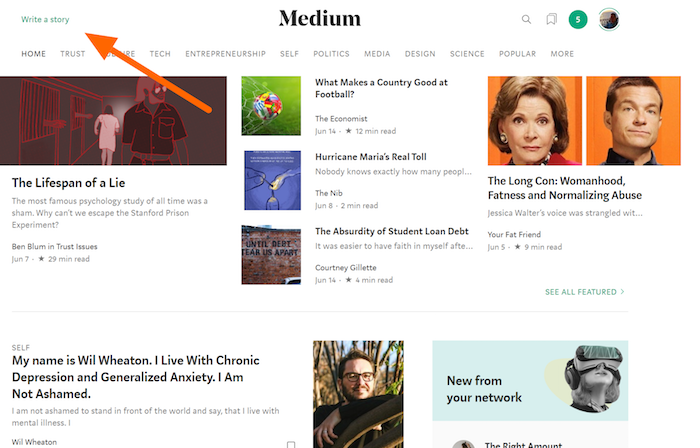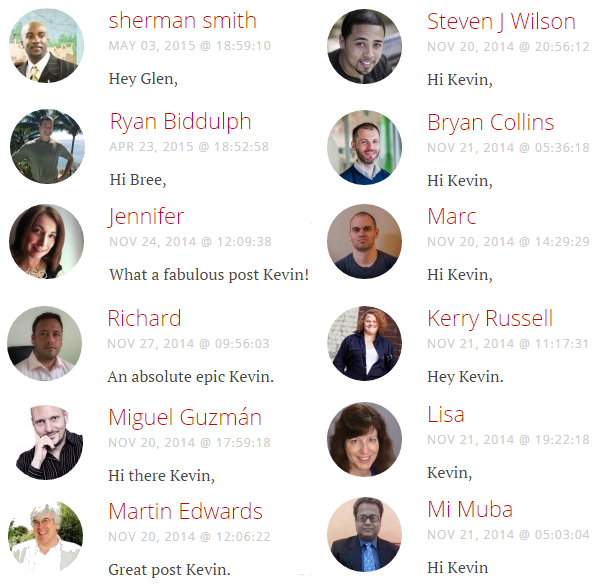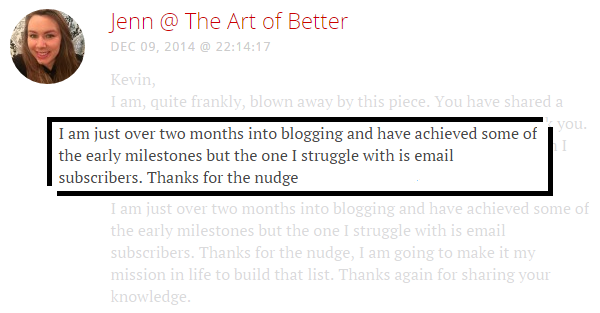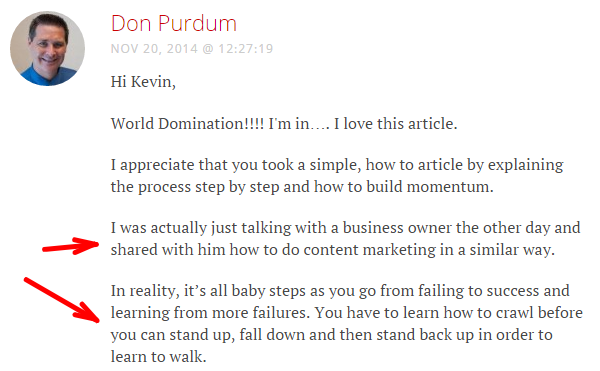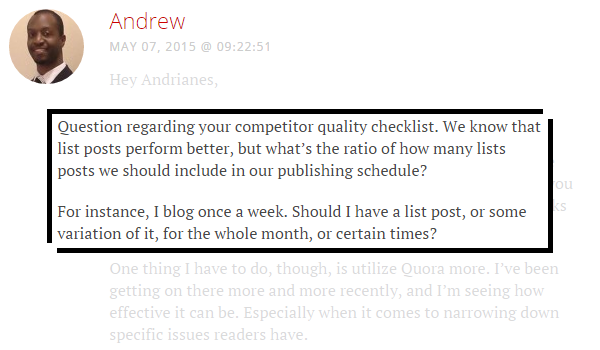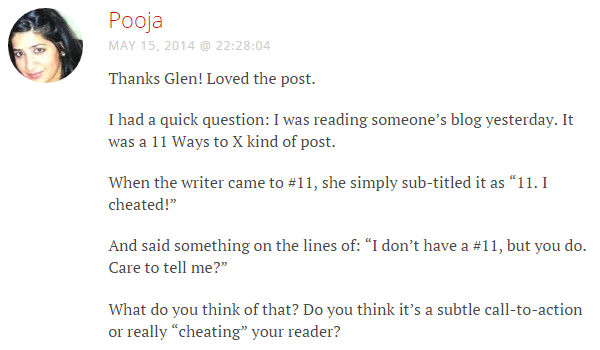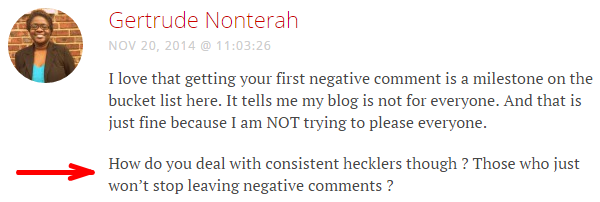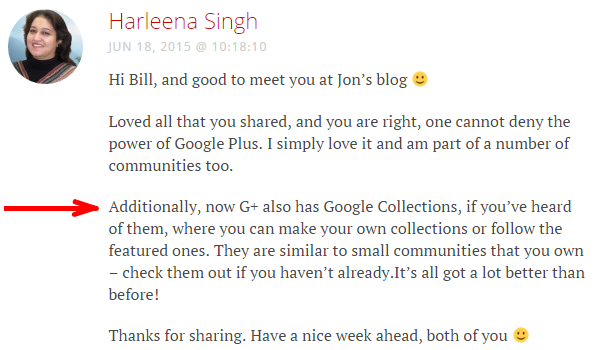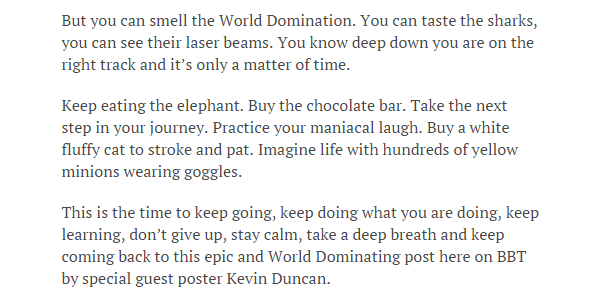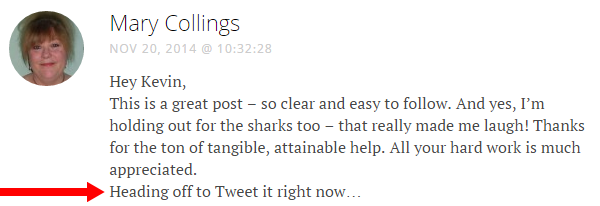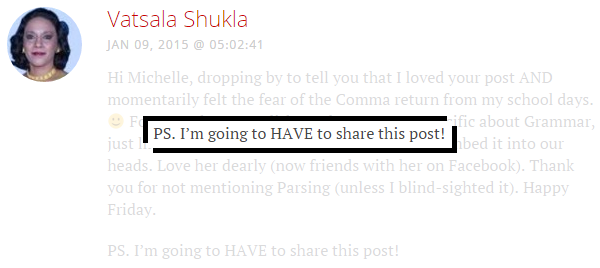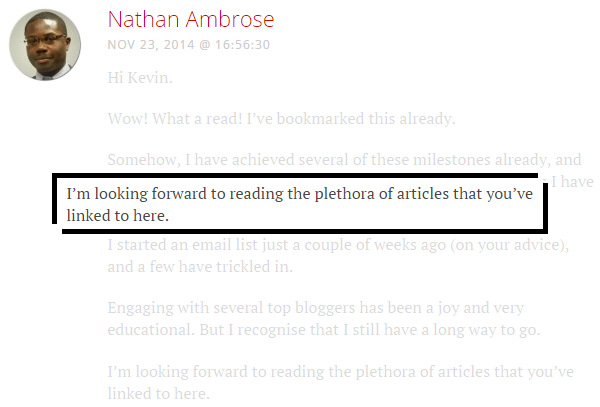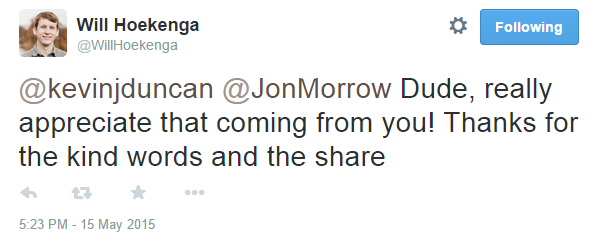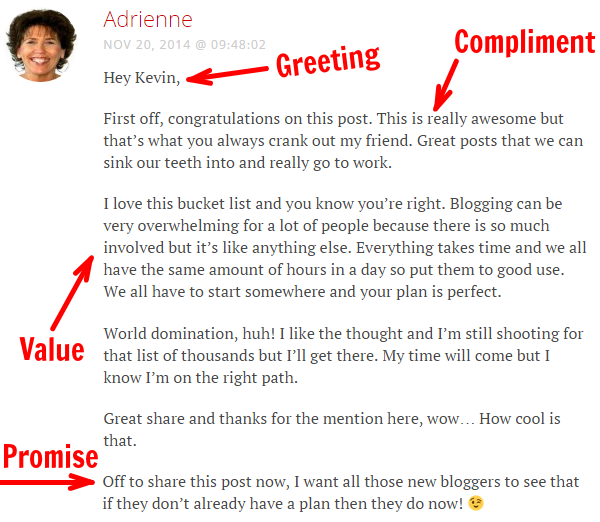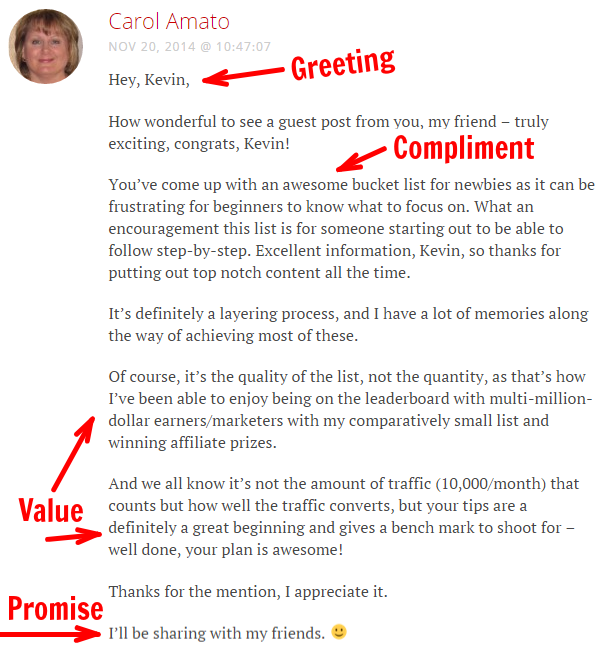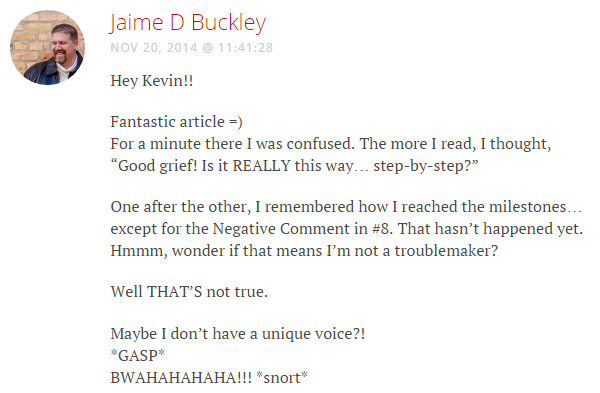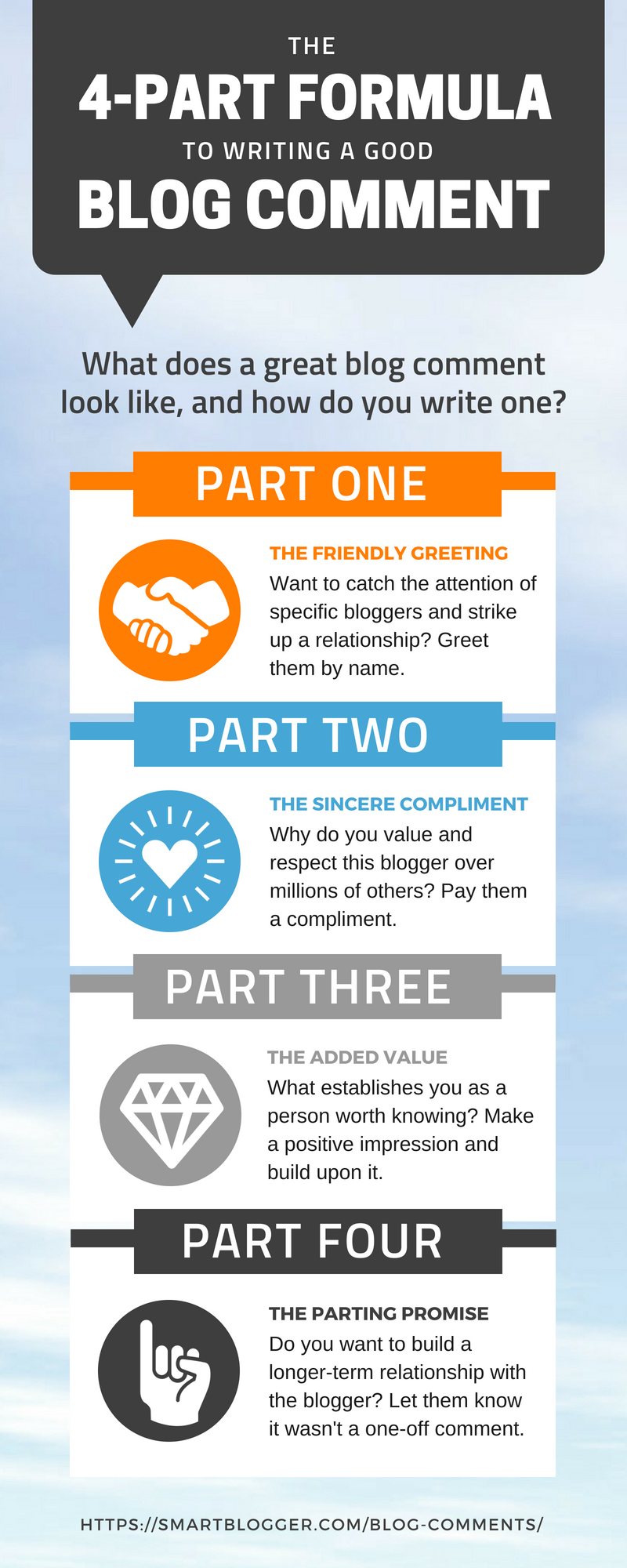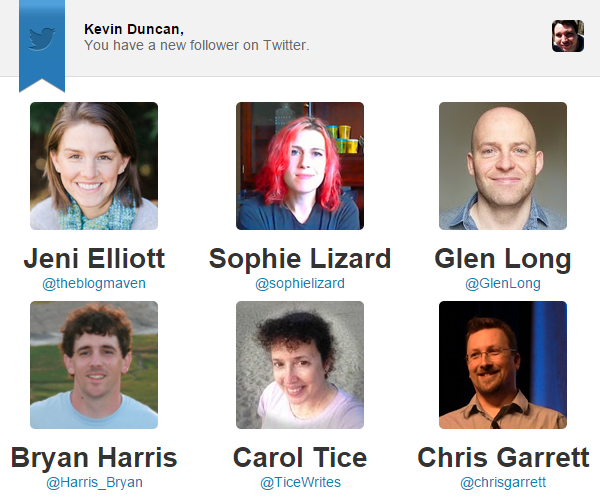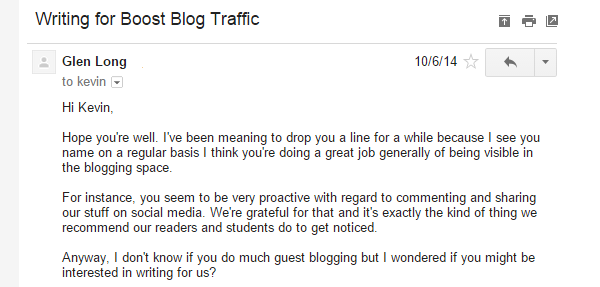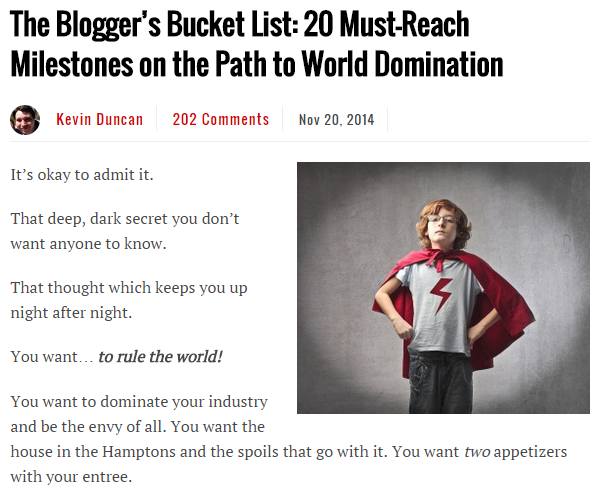
There are lots of guides out there about how to make money blogging, but here’s what makes this one different:
I’ve taken three different blogs to over $1 million per year. In fact, the blog you’re reading right now has made a total of $5.3 million.
And in this post, I’m going to give you a step-by-step case study showing you exactly how I did it, starting from nothing.
Let’s jump in.
How to Make Money Blogging, Even If You’re a Beginner
If you’re starting from scratch with no traffic or influential friends, it’s easy to wonder…
Is it reasonable for you to believe you can make money blogging?
For that matter, how do blogs even make money? Ads? Or something else?
Well, let’s take a look at exactly how I did it at Smart Blogger. Here’s my complete step-by-step process for how to make money blogging:
#1. Choose a Profitable Niche

Let’s start with a little brutal truth, shall we?
- Passion does not equal profit.
- Neither does expertise.
- Hard work doesn’t guarantee anything either.
For example:
You can be the world’s foremost expert on square-shaped tomatoes, wake up every morning with a burning passion to educate the public on their vast superiority to normal-shaped tomatoes, and work until your fingers bleed and your eyes fall out of your head, following all the right tactics for growing a popular blog, and…
You’ll never have a chance in hell at making any money.
Here’s why:
- Nobody but you gives a damn about square tomatoes
- Even if they did care, they wouldn’t spend any money
In other words, you need a large audience who buys things. Without that, nothing else matters. It’s a prerequisite for everything else.
In the case of Smart Blogger, I noticed early on that bloggers buy lots of different things:

In fact, there are companies with $10 million+ per year of revenue in most of those categories. It’s also a growing space with millions of people:
The only problem?
Loads of competition. Whether it be my previous employers Brian Clark or Neil Patel, my good friends over at Problogger, or the gazillion other “blogging about blogging” peeps infesting the social media space, everyone was intent on snagging a piece of the pie. They also had a several year head start on me.
So, how did I compete? The honest answer:
#2. Level up Your Content Skills
Embed This Infographic On Your Site
You’ve probably heard that “Content is king,” and it’s true… to an extent. A more accurate statement would be…
The Best Content Is King
If that’s hard to understand, think about it this way:
Lots of bloggers sit down and think, “What will I write today?” They jot down some thoughts, doing their best to be helpful, original, and entertaining. If they’re disciplined, they might even stick with it for a few months.
But it almost never works. Here are a few reasons why:
- What you want to say isn’t what other people want to read
- You weren’t using a proven content framework
- It’s not the best post ever published on the topic
Granted, it’s not your fault. Until today, chances are no one ever told you about any of those requirements. You thought you just had to write interesting stuff and publish it.
No, grasshopper. No.
The truth is, you have to create the best content ever published on topics lots of people are interested in learning more about. And that brings us to the three levels of content creation:
- You know what content is popular in your niche, and you write exclusively about those topics
- You’ve mastered frameworks proven to make your content more popular (list post, how to post, etc.)
- Your content delivers more value to the reader than any other post published on that topic
You’re probably thinking, “Geez. That sounds hard.” And you’re right, it is.
I personally spent about three years honing my skills by writing for other sites before I started my own blog. It doesn’t have to take that long — I’m just a perfectionist, so I wanted to learn from the best people in my space.
It worked, though. Nowadays, my posts get millions and millions of visitors, not because I know some special “secret,” but because I’m really good at what I do. In fact, I’ll go ahead and say it…
Blogging is really no different than anything else. The more of a bad ass you are, the easier it is for you to make money.
So you want to know how to make some money blogging?
Become a badass writer.
Then the next step is to…
#3. Figure out Which Traffic Sport to Play

When you’re a beginner, getting traffic is confusing.
Should you focus on optimizing your keywords? Growing your Facebook page? Leaving comments on blogs? Answering questions on Quora? Creating videos for YouTube?
And so on.
There are a gazillion traffic tactics out there. Everybody says theirs is the best.
But here’s the data:
Source: Facebook and Google dominate web traffic, but not the same kind
Pretty much all the traffic for written content comes from either Google or Facebook. The rest of traffic sources combined don’t even come close to competing with those two Goliaths.
So, how do you get them to send you a bunch of traffic?
One option is you can pay for it. They like that.
But chances are, you’re reading about how to make money blogging because you don’t want to pay for traffic. You want it for free, right?
Well, imagine this:
There’s an arena where all the bloggers in your space go to compete for traffic. The number of other challengers you defeat determines the amount of traffic you receive.
In other words, getting traffic is a sport.
- There are winners, and there are losers
- To be good, you have to train
- You need to study your opponents
There are actually two sports, and I’d bet you’ve heard of both of them: search engine optimization (SEO) and going viral on Facebook. Both take years (yes, I said years) of study to master, but you can start getting pretty decent traffic after just a few months of study and practice.
Which one should you focus on?
Well, here are two questions to guide you:
- Is your topic something your friends and family regularly talk about on Facebook? Examples: pets, parenting, self-improvement, and health. If so, focus on playing the viral traffic sport.
- Is your topic something people actively search for information about on Google? Examples: product reviews, specific questions they would ask an expert, how-to information. If so, focus on SEO.
For most topics, you can do both, but one or the other will be dominant. In that case, focus on whichever one is dominant.
In the blogging space, for example, stuff about writing and grammar occasionally goes viral on Facebook, because we love criticizing our relatives about their terrible English. On the other hand, you rarely talk with your family about blogging platforms, WordPress plugins, affiliate marketing, or any other blogging topics.
You will, however, search for them on Google. Just as you would guess then, the blogging niche is heavily dominated by search. Here’s a breakdown of Smart Blogger’s traffic by source:
The truth is, we pretty much ignore Facebook. The volume of traffic available there comes nowhere close to the volume of traffic available from Google. So, we focus on Google.
I also spend WAY more time keeping up to date on SEO stuff than I do on social stuff. I’m a geek about it. Throw me in a room full of Google engineers, and I’d probably know more than half of them.
Not to imply I’m the best, though. I’m also competing against people like Darren Rowse, Amy Lynn Andrews, and Neil Patel. They’re pretty freaking good too.
In time, I think I can be better, but who knows? That’s why sports are fun. You never know who is going to win.
If you’re good though, you’ll always be in the “playoffs,” for your space, and you’ll get lots of traffic. Maybe not the most, but still plenty.
And then you can focus on how to…
#4. Grow Your Email List with Pop Ups
Chances are, you see pop ups as an annoyance.
They get in the way when you’re trying to read. They ask you to hand over sensitive information like your name, email address, and phone number. Sometimes you have to deal with multiple pop ups on the same site, and it makes you feel hassled and uncared for.
And all that sucks. In my opinion, you have every right to be annoyed.
But here’s the thing…
That’s where the money comes from. The best predictor of the revenue for a blog is the size of their email list. Here’s a breakdown of our revenue at Smart Blogger comparing revenue device from email to other sources.
The rule of thumb is you can expect to make $1 per subscriber per month. So, if you have 10,000 email subscribers, you should be able to make about $10,000 per month.
So obviously, growing your email list is a top priority. You might, however, feel conflicted about using pop ups. What are you supposed to do?
Here’s a different way of looking at it:
If a visitor comes to your site and doesn’t give you their email address, the chances of them returning are nearly zero. You’ll never have another opportunity to help them.
If you believe your content is the best, and you believe you can help them over time, I believe you owe it to them to be as pushy as possible about staying in contact. In other words, not using a pop up is unethical. A little annoyance is a small price to pay for change.
And remember, that doesn’t mean you have to be extremely pushy or spammy. You can absolutely use pop ups in authentic ways.
But you absolutely must use them. Assuming you want to make money, anyway.
#5. Begin Monetizing with Affiliate Offers
So, you’re operating in a profitable niche, and you have traffic and an email list. What next?
Lots of bloggers jump into creating a course or book or community of some sort, but that’s a mistake, in my opinion. Before you start selling things, you need concrete evidence those things are what people want to buy. Otherwise, you’re risking wasting months or even years of your life trying to push a product no one wants.
The simplest way to obtain that evidence:
Affiliate offers.
By seeing what your audience buys from other people, you can get a much better sense of what they might want to buy from you. If you promote a product and it converts well, you should think about creating a similar product. If it doesn’t convert well, you should probably move on.
In other words, affiliate offers are a form of market research. As a bonus, you just so happen to get paid commissions on the products your customers buy in the process. So not only are you learning what your audience wants to buy, but you’re making money from your blog at the same time. Pretty sweet deal.
At Smart Blogger, I’ve tried lots of different offers. WordPress hosting, landing page tools, email marketing software, WordPress themes, and half a dozen different types of courses. Since we sell courses, I pay the most attention to the results from those programs, and here are a couple of lessons:
- End to end solutions sell best. Courses promising to take someone from knowing nothing to making money far outperformed the others. For instance, here’s a screenshot showing us as the #1 affiliate for Danny Iny’s Course Builder’s Laboratory:
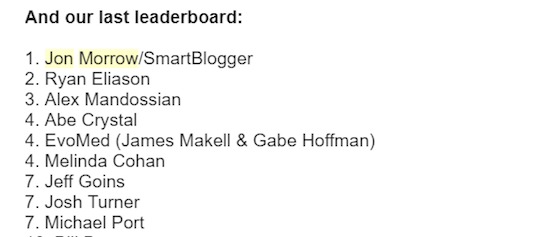
- Tools with a clear connection to making money also sell better than the others. For instance, landing page builders. As proof, here’s a screenshot of our earnings from promoting LeadPages:
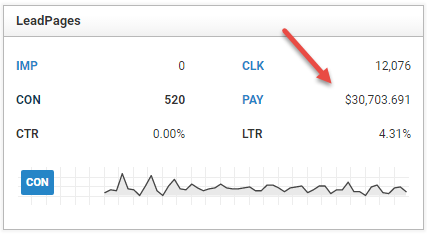
By themselves, neither of those promotions really moved the needle on our revenue, but they did teach us useful lessons that went into creating Freedom Machine, which brings us to…
#6. Develop a Unique Mechanism
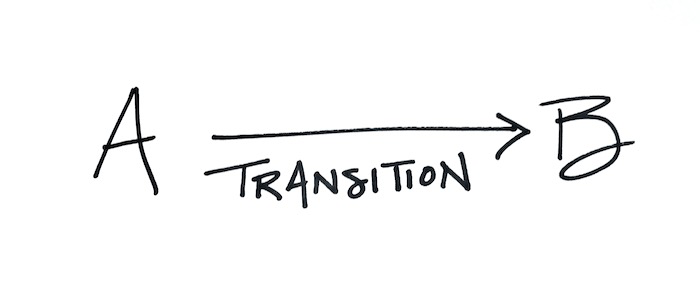
Before you think about launching your own products or services, there’s one essential point about human nature you need to understand:
Whenever anyone purchases anything, they expect to transition from where they are now (Point A) to where they want to be (Point B). For example…
- When you buy pizza, you want to transition from being hungry and craving pizza (Point A) to tasting delicious pizza and feeling full (Point B).
- When you hire a plumber, you want to transition from having a clogged, overflowing toilet (Point A) to having a normally functioning toilet (Point B).
- When you buy a course on SEO, you want to transition from feeling bewildered and getting ignored by Google (Point A) to ranking for competitive terms and getting traffic.
The success of a product ultimately depends on helping customers make those transitions. If the customer doesn’t get to Point B, they typically view the experience as a failure.
So, here’s the magic question:
What makes you better equipped to deliver that transition than your competitors?
The answer to that question is what marketing expert Todd Brown calls your “unique mechanism.” It’s a little different from a “unique selling proposition,” because it’s not just something about you that’s different. It’s something about you or your method that makes you better able to help customers than anyone else.
For Freedom Machine, we have multiple unique mechanisms:
- Get published on Medium — a platform with more than 60 million active readers looking for content
- You don’t have to struggle with setting up your blog. We do it for you.
- A research concierge who will do your research for you instead of having to pay for expensive tools
- Content frameworks developed behind the scenes at Smart Blogger to produce popular content
- A monetization methodology proven by our success with Smart Blogger
- Advice on how to automate everything, so you eventually get more freedom
- Weekly calls with me where I will help you set up your Freedom Machine
Combined, those unique mechanisms are EXTREMELY convincing at setting us up as the superior solution. Therefore, the product sells like hot cakes.
To be clear… it’s not necessary to have 7 different unique mechanisms. Sometimes just one is all you need (i.e. fresh, hot pizza in 30 minutes or less). The core idea though is to make sure you are obviously far more capable than your competitors at delivering results.
Then all you have to do is…
#7. Launch the Minimum Viable Funnel
Look around at successful entrepreneurs of any type, and you’ll find a surprising trend:
They tend to sell their products before the product is created.
To most people, this sounds like insanity at best or a disturbing lack of ethics at worst. How could you possibly ask people to buy something that doesn’t exist?
The answer:
It’s the same principle as Kickstarter.
You create a fancy minimal sales funnel of some sort (in this case, just a simple sales page), tell people the product is coming soon, and then wait to see if enough people sign up to justify making the product. If they don’t, you refund everyone’s money and start over.
In other words, it’s the final step in validating you have a viable product. The steps go like this:
- Identify demand by promoting affiliate products
- Find a unique mechanism that makes you clearly superior
- Test the demand for that unique mechanism with a quick and dirty launch before you create the product
In my case, the minimum viable funnel was a 90 minute webinar (you can register for the current version here.) The first time I did it, there was no product, no follow-up sequence, nothing. It was just a bare-bones test.
And it resulted in $126,000 in sales live on the webinar.
Seeing that $30,000 sales was my minimum for success, we went ahead and created the first version of the product live with students. About a year later, it’s now approaching $1 million in sales.
That’s also just one product. We have others, and we have still more in the research pipeline.
And guess what I would do if I had to start over again?
The exact same thing. It’s not easy, it’s not fast, it’s not even that sexy, but it works.
Let’s close with some questions and answers, shall we?
FAQ about How to Make Money Blogging
So, we’ve covered the basic process. Now let’s step back for a moment and answer some of the questions I hear the most often:
Do bloggers make money?
I certainly do, but I don’t think that’s what you’re asking. I think you’re asking…
“Is it reasonable for me to learn how to make money blogging?”
The no BS answer:
It depends on how patient and persistent you are.
Starting a blog from scratch is just as difficult as starting any business. For example, it requires the same time and effort as starting your own restaurant, software company, or accounting service. Yes, those businesses are wildly different, but the first few years are usually the same story: low income, lots of stress, big learning curve.
If you want a more concrete answer than that, we’ve found it takes even our smartest, most dedicated students 3-6 years to make enough money from blogging to quit their jobs. And that sounds like a long time, but so what? 3-6 years to be able to work from anywhere in the world, take a vacation whenever you want, and probably have passive income until the day you die?
Sounds like a pretty good deal to me.
How much money can you make from blogging?
The fact is, most bloggers make as much money as any other type of entrepreneur:
Nothing.
And it’s not because there’s no money in it. This blog makes more than $1 million per year, for God sakes, and it’s nowhere close to the most profitable blog out there. Blogs like The Penny Hoarder, Moz, and Lifehacker power businesses worth hundreds of millions of dollars.
So why aren’t more bloggers rich?
The truth is, most people quit. They start a blog, realize it’s hard work, and walk away.
But if you’re patient and persistent?
You can make millions. I have. So have lots of other smart, dedicated entrepreneurs.
You just have to do the work. Consistently. For years.
Can you do that?
Then yeah, I think you can make six figures at least. Maybe more.
How do you start your own blog for free?
Lots of people say you can’t. They tell you to buy a domain name and a hosting account and a premium WordPress theme.
But I think that’s nonsense.
You can get started for free within five minutes on Medium. They also have over 60 million monthly readers, so you can get a lot of exposure there if you get featured.
This article walks you through that strategy, step-by-step.
Alternatively, you can write on WordPress.com, Linkedin, or any of the other platforms out there. It doesn’t really matter. The point is, start writing and learning as soon as possible.
Once people start sharing your articles, and you begin to understand how everything works, then you can go through the trouble of setting up your own site, installing WordPress, and all that jazz. Until then though, it’s just a headache you don’t need.
What are the most popular blogging platforms?
WordPress is by far the most popular. No one else is even close.
But that doesn’t mean it’s the best for everyone.
As I mentioned earlier, I think Medium is a good place to start. You can also create your own blog with tools like Blogger, Squarespace, Wix, Joomla, and countless others.
What are the top blogs about how to make money blogging?
I’d like to think Smart Blogger is the best (and most comprehensive) site on the topic, but it’s by no means the only one. Not all of these talk about how to make money blogging, but together, they give you a solid foundation:
- Backlinko — Brian Dean doesn’t talk much about how to make money blogging, but he’s one of the top experts and educators in the world on SEO. What I love about his content is how easy to understand it is, despite covering some incredibly complex topics. If you’re a beginner, prepare for a treat.
- Digital Marketer: — In my opinion, my friends over at Digital Marketer are the best in the world at monetizing traffic. If you’d like to learn about marketing, list building, customer research, automation, or funnels, there’s no better source.
- Smart Passive Income — If you’re interested in using your blog to build passive income, Pat Flynn is a master at showing you how to build a tiny little business that can support you and the lifestyle you want. Both his blog and podcast are excellent.
The Bottom Line about How to Make Money Blogging
Is it possible?
Absolutely, but only if you treat it as a business.
Yes, you can start your blog as a side project. Yes, you can slowly grow it in the background. Yes, you can turn your blog into a source of passive income that eventually lets you quit your job, travel, spend more time with your family, whatever you want to do.
But like anything worthwhile, it’s hard work getting there.
You have to study. Practice. Master your craft.
If you love writing, I can’t imagine a better business, though. Not only is blogging a great way to get your writing noticed, but it’s a great way to connect with people around the world who need you, teach them what you know, and get paid pretty damn well in exchange.
There’s never a day I regret dedicating myself to blogging. Never.
It’s not just because of the money, either. It’s because I also get to do what I love and help people at the same time.
What could be better than that?
The post How to Make Money Blogging: The $5.3 Million Case Study appeared first on Smart Blogger.
source https://smartblogger.com/make-money-blogging/
